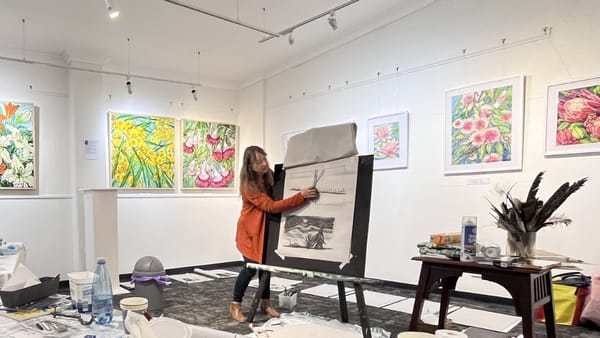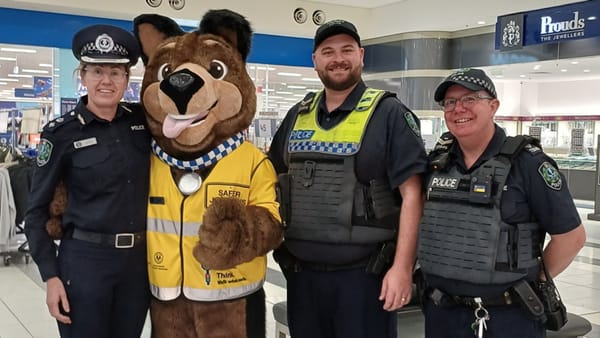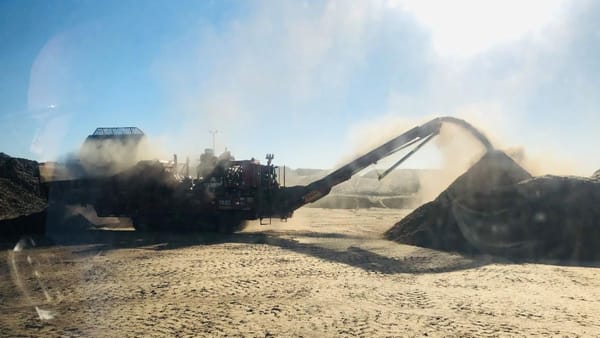Water buybacks won’t make groceries more expensive, Tanya Plibersek says
The federal Environment and Water Minister has argued in favour of voluntary water buybacks at a Murray-Darling Association conference in Murray Bridge.
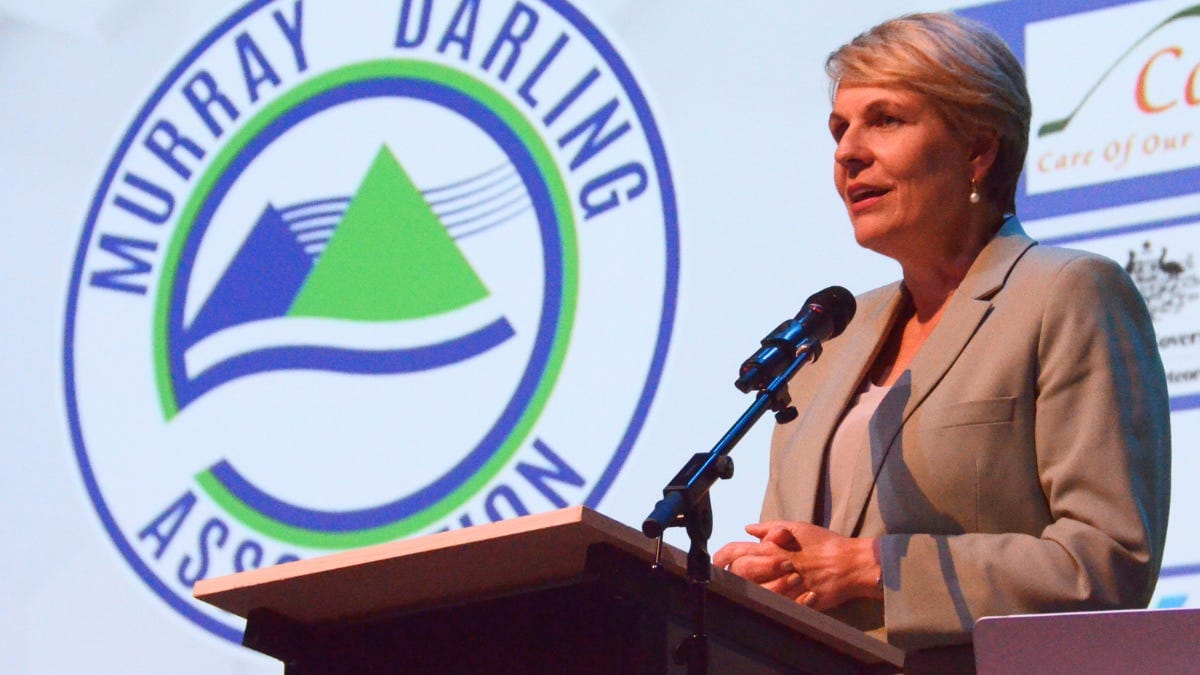
Locals support locals – that’s why this recent post is now free to read. Your support can help Murray Bridge News tell important local stories. Subscribe today.
Your grocery bill won’t necessarily get bigger if the federal government buys back water to preserve the Murray-Darling river system.
So says federal Environment and Water Minister Tanya Plibersek, who spoke at a national conference in Murray Bridge last week.
Buybacks are a way of saving water for the environment: the federal government buys irrigators’ water entitlements and leaves that water in the river, benefiting plants, animals and communities downstream.
They have been demonised by some, including local federal MP Tony Pasin, who described them in March as being like a “tax on food production”.
Reducing the amount of water available to farmers would drive up prices, he argued, which would drive up the cost of the food grown along the river.
“The economic impacts of taking water out of productive use will not only hurt local communities, but will reverberate throughout the state and the nation as we see further increases to our grocery bills as a result,” he said.
But Ms Plibersek said food prices were affected by lots of different things, including the cost of fuel, energy, labour, transport, supply and demand.
Locals support locals. Your support helps Murray Bridge News tell important local stories.
“Cyclone Yasi made bananas a luxury good; the floods in northern New South Wales meant that every hamburger in the country had cabbage on it, not lettuce,” she said.
“The Black Summer bushfires cost agriculture between $4 billion and $5 billion; frosts cost an estimated $700 million every year.
“(But) when water recovery was at its highest, in 2011 and 2012, the price of food and drinks decreased by 3.2 per cent.
“This is a complex relationship, and if we pretend that it’s a simple one, we’re not doing anybody any service.”
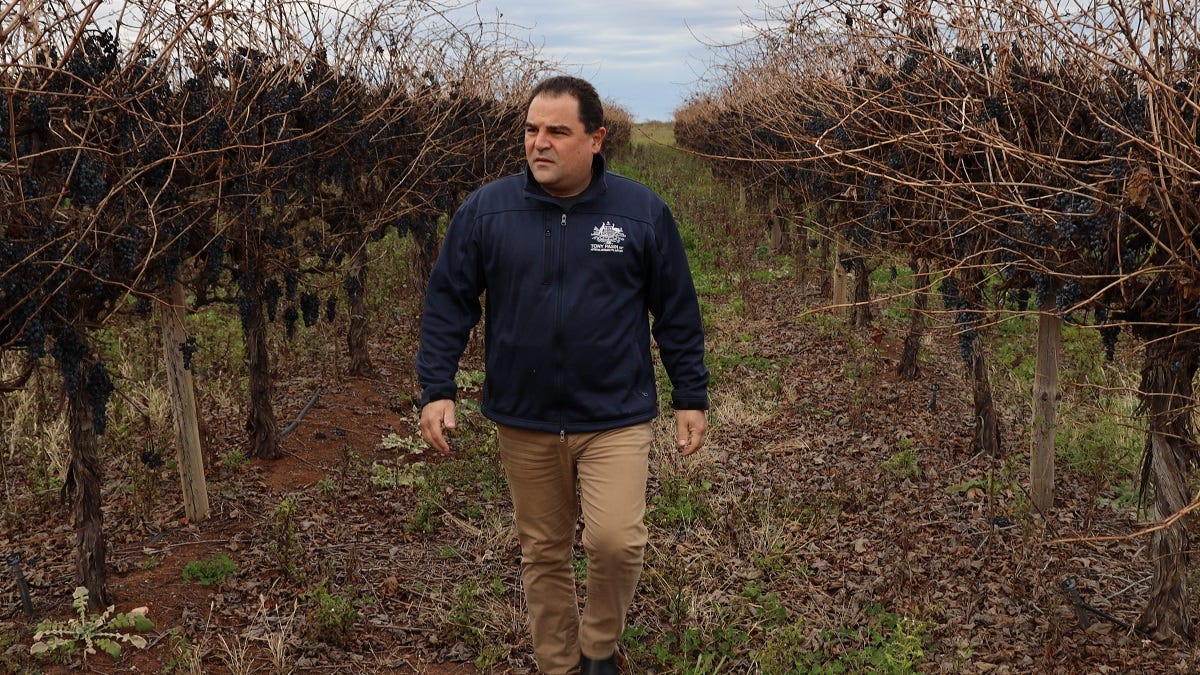
In any case, Ms Plibersek said, buybacks were necessary for the health of the river system.
“I don’t think there’s any way of achieving the Murray-Darling Basin Plan without some water purchases,” she said.
Nobody would be forced to sell their entitlements; and buybacks wouldn’t make up 100 per cent of the government’s water-saving strategy, anyway.
“Assumptions are coming with genuine fear and (memories of) bad experiences from the last time water was purchased – I understand that,” she said.
“(But) I think there are other motivations from people who are just trying to scare people as well … scare campaigns that make people who are already facing tough times more nervous than they need to be.”
Buybacks would be undertaken on a catchment-by-catchment basis, she said.
In buying water entitlements, the government would look to minimise social and economic impact, get good value for money, and achieve maximum environmental impact – “we’re not just going to take any offer that drops on the table”.
Who’s up for another referendum?
Of all the questions Ms Plibersek faced from the audience, the one that drew the most applause came from Berri-Barmera’s Andrew Kassebaum.
Could the federal government hold a referendum to take control of water away from the states, ending the fighting over the Murray-Darling Basin Plan once and for all?
It was tempting to think that would work, Ms Plibersek said.
But she suggested that the need for compromise ensured local opinions were heard across the basin, which was a good thing.
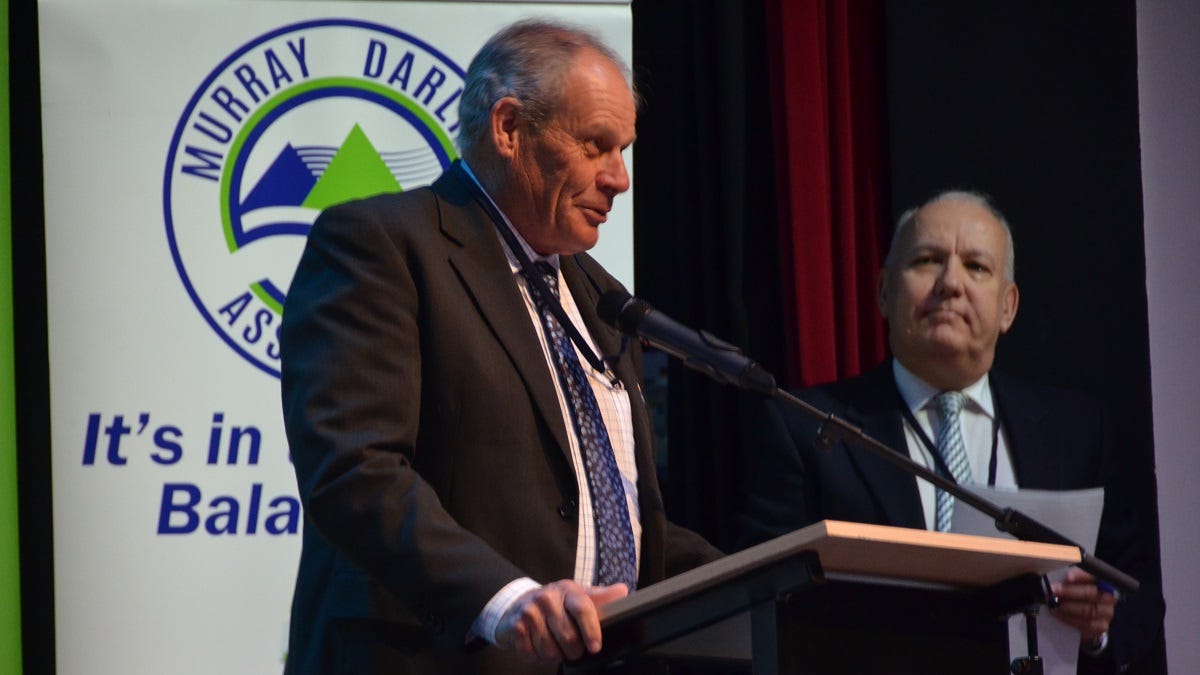
River councillors urged to work together
Ms Plibersek made her remarks at a national conference of the Murray Darling Association, which represents local governments across the basin.
Delegates toured the Lower Murray, Lower Lakes and Coorong during the conference, learning about the local ecosystems and agricultural industries that depended on a healthy river.
Murray Bridge Mayor Wayne Thorley encouraged the visitors to think of us down here as they returned to their homes upstream.
“We have one common thing amongst us, and it’s the River Murray,” he said.
“Let’s think of ourselves in partners in this business, like shareholders in a company … we all have a say, we just don’t leave it up to management to tell us what to do.”
MDA president David Thurley echoed that sentiment.
“(A) lack of collaboration has led to many poor outcomes for the environment, including flora and fauna, our First Nations people and our rural and regional cities and towns,” he said.
“Now, more than ever, is the time to get rid of the rivalries and start to work together so we can all survive and prosper.”


